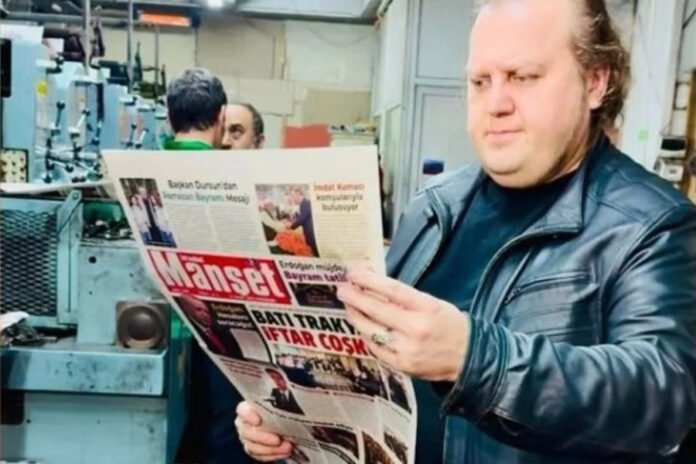A Turkish journalist was detained Wednesday after publishing a report alleging that a local official from the far-right Nationalist Movement Party (MHP) was assaulted during a traffic dispute, the TR724 news website reported.
Engin Belli, a journalist and owner of the İstanbul Manşet news outlet, was taken into custody on Wednesday over a story published April 3 which claimed that the MHP’s Sultangazi district chairman, Yusuf Özel, was beaten by three young men in the street. Turkish authorities accuse Belli of “publicly spreading misleading information.”
In a statement to the police Belli said he received the information from a source affiliated with the MHP during the Ramadan holiday.
“I was told that Yusuf Özel was dragged and punched but didn’t reach for his gun,” he said. “I reported the event based on the information I had at the time.”
Belli also alleged that senior MHP officials and a former candidate from the ruling Justice and Development Party (AKP) contacted him, demanding that he take down the article. “I refused to remove it, though I said I would correct any factual errors,” Belli said. “I stand by my reporting.”
His lawyer, Ali Acar, criticized the detention as unjustified. “He has a fixed address, poses no risk of tampering with evidence and came in for questioning voluntarily,” Acar said. “This kind of response sends the wrong message to journalists. He’s also a heart and diabetes patient, and keeping him in custody could endanger his health.”
Turkey has seen a sharp decline in press freedom over the past decade, with independent journalism frequently targeted through legal pressure, arrests and media takeovers. The country consistently ranks near the bottom of global press freedom indexes. Reporters Without Borders ranks Turkey 165th out of 180 countries in its 2023 World Press Freedom Index.
Journalists critical of the government or allied political parties, including the AKP and its far-right partner, the MHP, have faced increasing scrutiny under laws criminalizing “disinformation,” “insulting public officials” and “terrorist propaganda.” Dozens of reporters remain in prison, and many more are the subjects of ongoing investigations.
In this environment, even local reporting on politically sensitive figures can trigger legal consequences, contributing to a climate of widespread self-censorship in the Turkish media.















